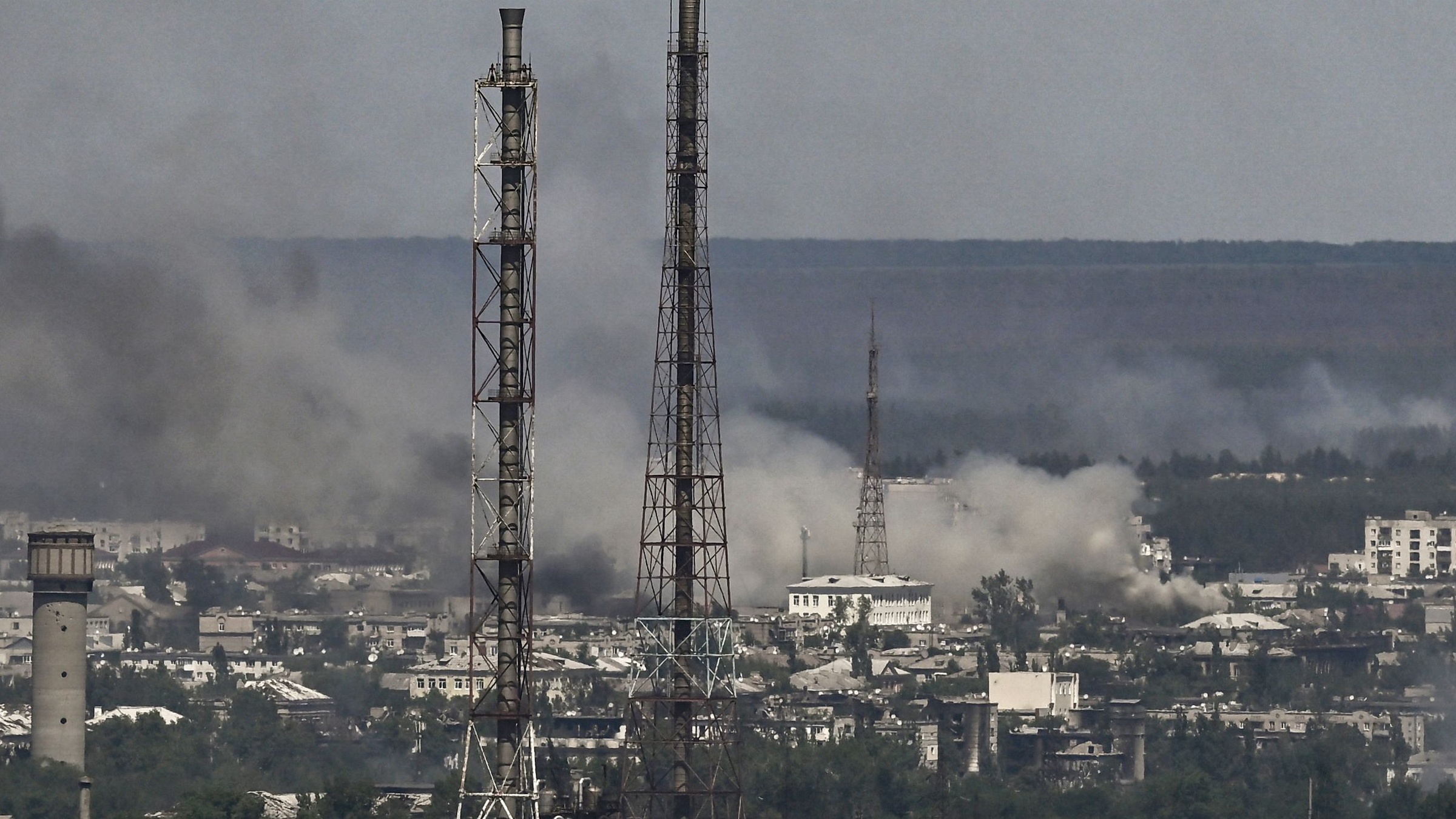Is Ukraine’s retreat from Severodonetsk a turning point in the war?
The city has seen heavy fighting as Moscow’s forces aim to control the entire Donbas

A free daily email with the biggest news stories of the day – and the best features from TheWeek.com
You are now subscribed
Your newsletter sign-up was successful
Ukraine has ordered its troops to withdraw from Severodonetsk, the eastern city that has faced months of relentless assault from Russian forces after becoming the focal point of Moscow’s offensive.
Serhiy Hayday, the regional governor of the eastern Luhansk region, said Ukrainian forces had received “a command to withdraw to new positions, to new fortified regions, and from there to conduct normal battle operations”. He added: “Unfortunately… it will be necessary to withdraw.”
Severodonetsk, the provincial capital of the Luhansk region, “is already more than 90 per cent occupied by Russian forces”, said the Financial Times (FT). Along with the nearby town of Lysychansk, it is the “only remaining city in the province not yet controlled by Russian troops”.
The Week
Escape your echo chamber. Get the facts behind the news, plus analysis from multiple perspectives.

Sign up for The Week's Free Newsletters
From our morning news briefing to a weekly Good News Newsletter, get the best of The Week delivered directly to your inbox.
From our morning news briefing to a weekly Good News Newsletter, get the best of The Week delivered directly to your inbox.
The fall of the city “caps months of heavy artillery-led fighting” said the paper, and “underlines Russia’s slow but steady advance in the eastern Donbas region”. This was where Moscow refocused its military efforts following its inability to take the capital of Kyiv in the opening days of the war.
Ukrainian troops in the area were outgunned by Russian artillery “at a ratio of 10:1” said the FT. They were “taking heavy casualties, with about 100 troops killed in action daily”, and morale was low.
Big victory for Moscow…
The fall of Severodonetsk, once home to more than 100,000 people and now “reduced to a wasteland of rubble by Russian artillery”, is certainly “Moscow’s biggest victory since capturing the port of Mariupol last month”, said Al Jazeera.
Its fall “transforms the battlefield in the east of Ukraine where Moscow’s huge advantage in firepower had until now yielded only slow gains”, continued the news site. It added that its capture is “likely to be seen by Russia as vindication for its switch from its early, failed attempt at ‘lightning warfare’ to a relentless, grinding offensive using massive artillery in the east”.
A free daily email with the biggest news stories of the day – and the best features from TheWeek.com
…but not a turning point in the war
An unnamed senior US defence official “downplayed” the significance of its fall, said The Washington Post. Russia has only made incremental gains while a large number of troops have been killed, they said.
“The way that I view it is that the Ukrainian armed forces are performing a professional, tactical retrograde to consolidate their forces in positions that they can better defend themselves,” the official told the paper, speaking on the condition of anonymity.
Analysts at the Institute for the Study of War have said that while the fall of Severodonetsk represented a loss of terrain for Ukraine, it was not a “major turning point in the war” nor a “decisive Russian victory”.
“Ukrainian troops have succeeded for weeks in drawing substantial quantities of Russian personnel, weapons and equipment into the area and have likely degraded Russian forces’ overall capabilities,” they said.
“Russian offensive operations will likely stall in the coming weeks… likely granting Ukrainian forces the opportunity to launch prudent counteroffensives.”
But Russia will now be hoping its victory in Severodonestsk will allow it to press on and seize the twin city of Lysychansk, bringing Moscow significantly closer to capturing the entire Donbas region.